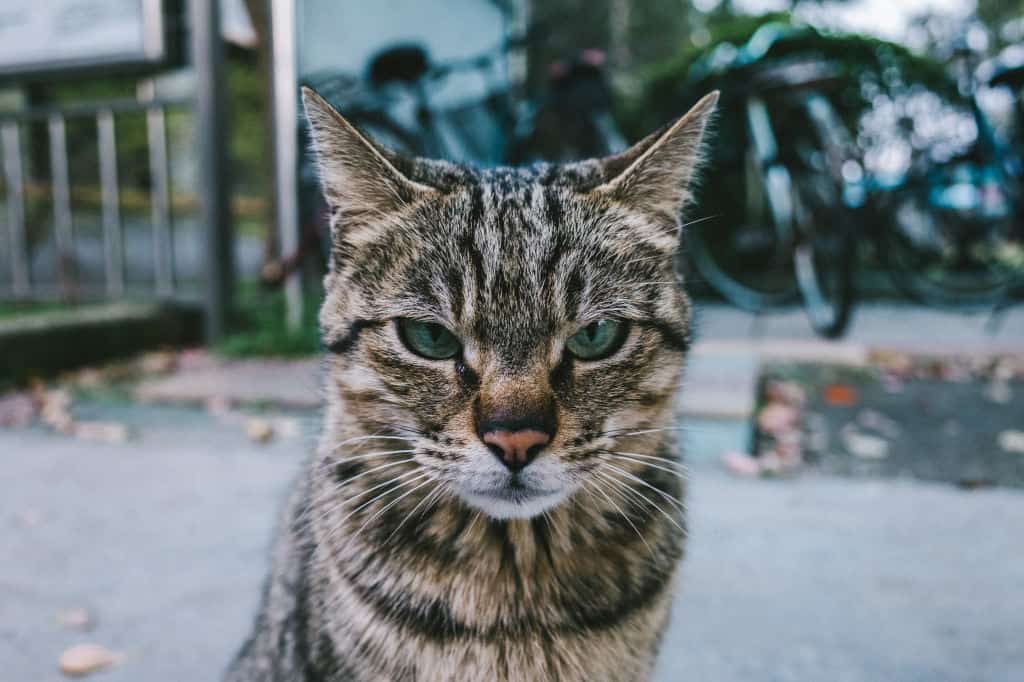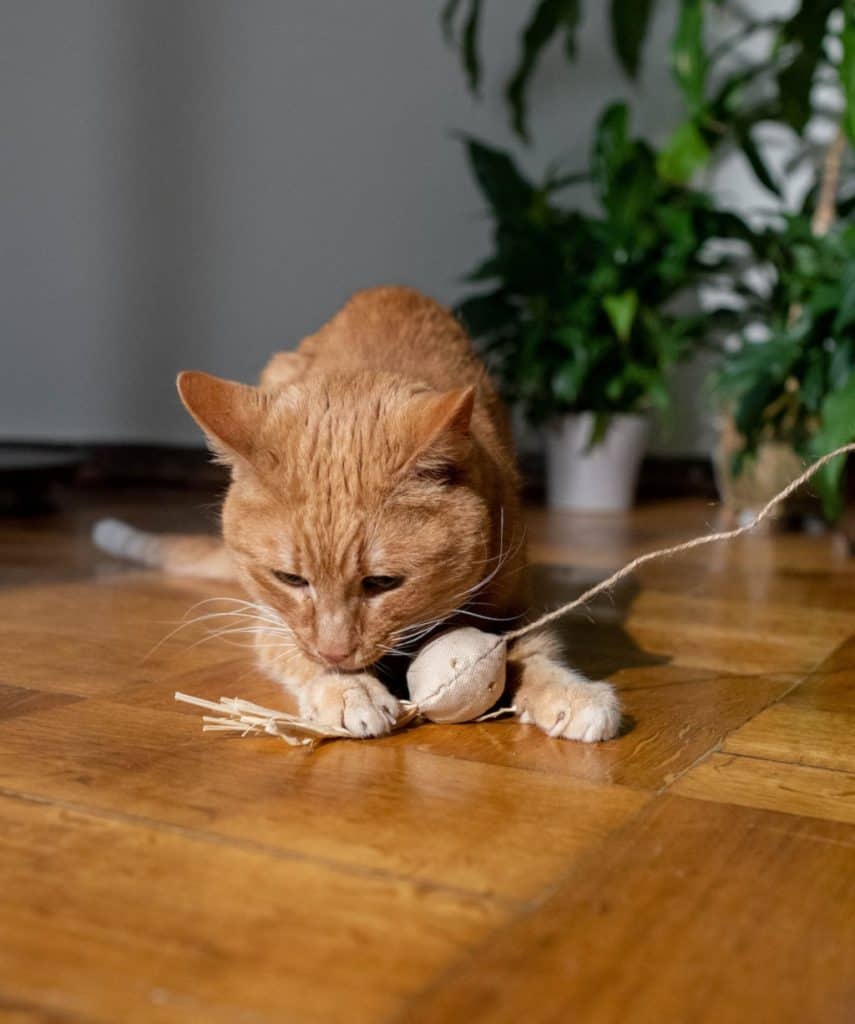Disclosure: We may earn a commission from helpful, relevant links in our content. No cost to you. See our privacy policy.
Your cat may be stressed and potentially overstimulated by a shift in activity, changes, noises, and scents. When your cat is used only to you, less exposure to other people makes all those new things more frightening.
The cat may require extensive socialization if you rarely have visitors or other pets while the cat is there. When you invite others over, she becomes scared and defensive, which is natural because they threaten her.

Why Would a Cat Be Aggressive Toward Others?
A well-socialized cat will tolerate strangers and won’t hide at the first sign of a new person or smell that appears. This exposure and training need to be done when they are kittens.
Most aggressive behavior in cats stems from worry or fear, though I had one who was highly territorial. A good behaviorist can be pricey, but even one or two appointments can help you understand what’s going on and what you can realistically expect. You can take it from there.
It could be many other things. Your cat may be traumatized or have pent-up aggression from the lack of play and exercise. The first is more difficult to deal with, but the latter can be easily fixed.
Why Would a Cat Dislike a Stranger in Your Home?
It is common for cats to be cautious and avoid approaching or being near strangers in their homes. Strangers can smell or act differently than your cat is used to.
It could be a person’s smell, personality, or ambiance that attracts or repels a cat. Aggression toward strangers is caused by fear, territorial issues, getting petted, or playing.
One typical cause could be a lack of experience with visitors as kittens. A well-adjusted cat won’t mind meeting new people unless they are violent or smell of something cats especially dislike.
In addition, the cat could have had a negative experience with someone who resembled or smelt like that person. Some cats do not cope with change as well as others. If they are not socialized, this adds to the stress.
How to Stop Your Cat from Being Hostile to Others?
Try to avoid overwhelming them with attention. Don’t corner them in any manner or handle them in a way that can be stressful to a shy or terrified cat. Ignoring her and allowing her to dictate the pace of interaction may be beneficial.
Disciplining cats does not work, even if it’s just locking them in a bathroom. It generally makes the cat more aggressive, so suggestions to spray with water, etc., are unlikely to be effective.
If a cat is afraid of strangers in your home, aside from simply giving it time, you can create a bond with the stranger by letting visitors offer the cat some treats. Keep the snacks in a pretty jar or near the front door. When your friends arrive, have them grab a snack and present it to him as an offering. It will establish a link between people and rewards.
You can also try to get the aroma through the clothes of the person with whom you want your cat to be friends. That could help cats get used to them.
Your cat may be aggressive because they’re not getting enough playtime. Try to play with your cat at least twice a day. Each session may take roughly 10 to 15 minutes for them to get fatigued. The cat will be sufficiently stimulated by play and exercise to calm down.
Get your cat some toys and give her one to play with. You can replace it if she doesn’t enjoy it after a few days/weeks. This way, the cat will have a constant supply of new toys every few weeks, which cats enjoy.

In some cases, a veterinarian behaviorist is your best hope for getting the assistance you require. Many offer online consultations if there isn’t one near you.
I’ve had several aggressive cats, and they’ve continually improved after some help from a behaviorist. Some were given medications to help them relax, while others became better through play and interaction.
Many behavioral issues cannot be “fixed,” but they can be considerably improved with management and, in some cases, medication to the point where they are no longer bothersome.
Additionally, look into environmental additions for your cat. Cat towers or shelves, for example, can drastically alter the behavioral dynamics of some cats.
Ensure the cat has a safe location with no dead ends, so they can always escape and aren’t cornered. Allow a cat to come out at their own pace rather than forcing it. Get someone to assist you in socializing and training a cat.
Finally, a cat should nearly always be spayed or neutered. Spaying and neutering cats significantly reduce hostility. Moreover, if one or more cats are intact, it’s frequently impossible to stop aggression between cats because of their natural territorial instinct.
Do Cats Only Bond With One Person?
Cats have complex social lives and can create multiple bonds. They often prefer one individual, but they will eventually bond with anyone who is kind to them and speaks their language. It depends entirely on the situation and how each individual handles the cat.
That said, any animal can distinguish between people and choose a favorite. Cats’ favorite person might also change over time, based on how you treat them, their attitude, and the environment.
FAQs
How to tell if your cat was traumatized?
Cats can get traumatized just like any other living animal. Trauma can cause them to shake, hide, urinate, howl, pace, vocalize a lot, and breathe heavily. Many rescued cats are traumatized, but they need a little extra love and patience.
Do male cats prefer female owners?
Whether a cat will love a male or a female more usually depends on the personalities of the cat and humans. It typically has nothing to do with the gender of either. Some cats seem to prefer one gender over another, but it can often happen due to bad experiences.
Are male cats more affectionate than females?
Male cats are generally more affectionate toward humans and other cats. Females are more independent, while males are more concerned with pleasing us. Even if they are not from the same litter, males frequently build deep ties with other cats in the same home.
Alex, a passionate animal lover, has experience in training and understanding animal behavior. As a proud pet parent to two dogs and three cats, he founded AnimalReport.net to share insights from animal experts and expand his knowledge of the animal kingdom.




